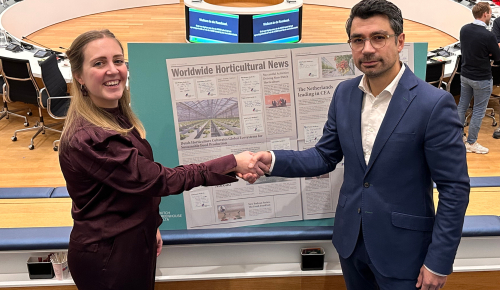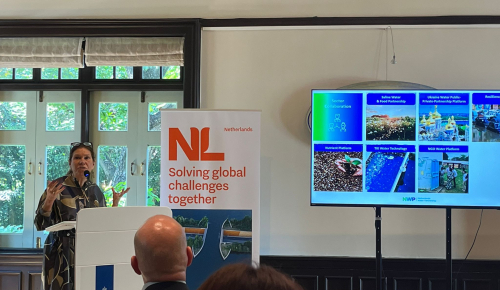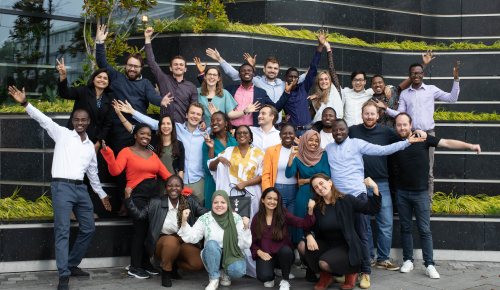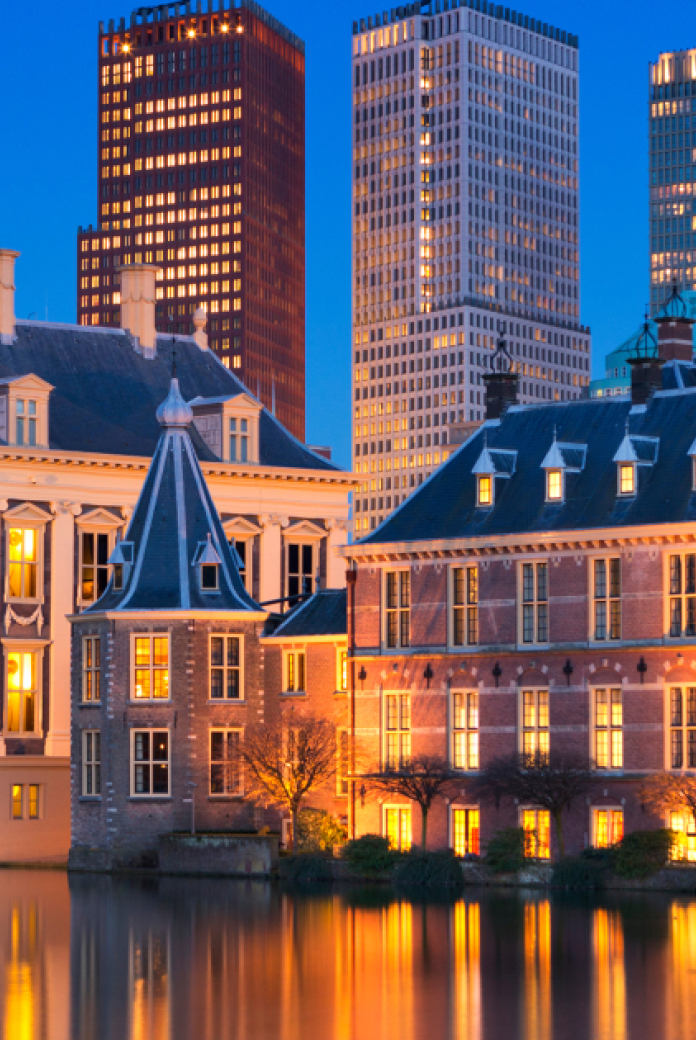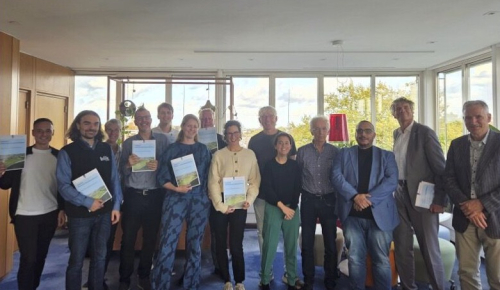Blog
12 December 2019Dutch and Indian expertise unite for climate adaptation
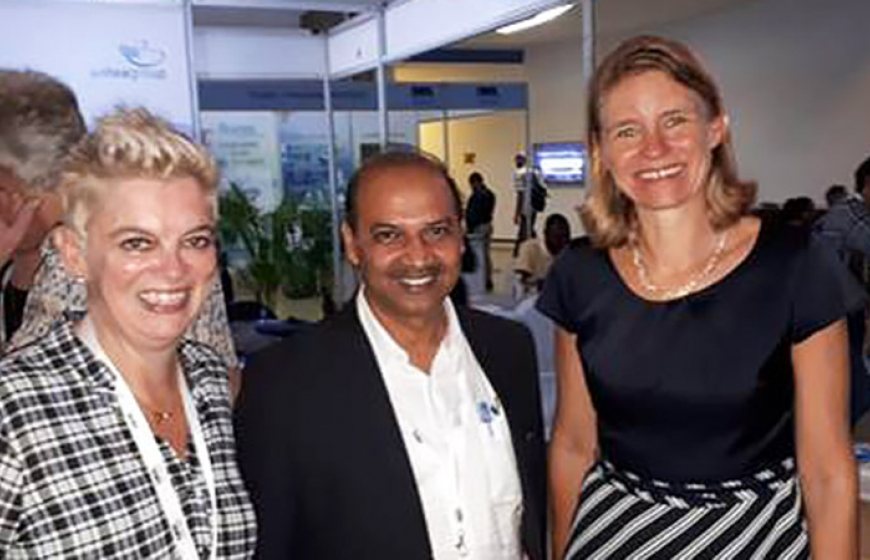
Antea India, part of the consultancy and engineering firm, NWP member Antea Group, is working on an ambitious climate adaptation programme to improve water management in the Cauvery delta in Tamil Nadu, in the south of India. Krishna Kant Gupta, Head of Water and Urban Infrastructure at Antea India, presented this case last week at the Water and Development Congress and Exhibition 2019 in Colombo, Sri Lanka. This initiative is a good example of how Dutch and Indian expertise and experience can collaborate to solve water challenges.
‘The Cauvery delta in Tamil Nadu in the south of India has faced recurrent water scarcity and flooding due to erratic climatic events over the last two decades. The delta’s water scarcity has been aggravated by inadequate water releases from a reservoir because of an interstate conflict, and this is affecting agricultural production. The Government of Tamil Nadu, supported by the Asian Development Bank (ADB), has taken up the ambitious task of implementing a climate adaptation programme to improve water management in the delta. Phase I, which is now being implemented, entails work on six rivers. The remaining 37 rivers in the delta will follow in Phase II.
To accommodate climate change and its extreme events, the river basin flood and regular flow will have to be mitigated by physical hydraulic and hydrological modelling interventions in the 37 rivers. In Colombo, I presented the modelling results of the Paminiyar river which has a total length of 55 kilometres and a catchment area of almost 800 square kilometres. Our modelling has shown that most of the current regulators do not have adequate capacity. Therefore, a series of physical measures have been recommended to, one, improve the overall water management in the river catchment irrigated area, and, two, to mitigate flooding. These will also enhance agricultural productivity.
The Water and Development Congress 2019 was a great stage to present our experience and expertise. Equally, the Netherlands Pavilion in the exhibition area offered us interesting networking and business opportunities. The presence of the Dutch Ambassador to Sri Lanka Ms Tanja Gonggrijp in the Pavilion made the experience even more attractive. We were able to showcase our sustainable solutions to water professionals from over 90 countries. It was a great occasion to share Antea's work in the area of water, environment and climate change.
We specialise in full-service solutions in fields ranging from urban development, mobility, infrastructure and construction to rural development, water, environment and safety. We entered the Sri Lankan market some three years ago and were able to network effectively at the Congress and meet several Sri Lankan companies who might become future partners, in particular in the fields of rural and urban water management.
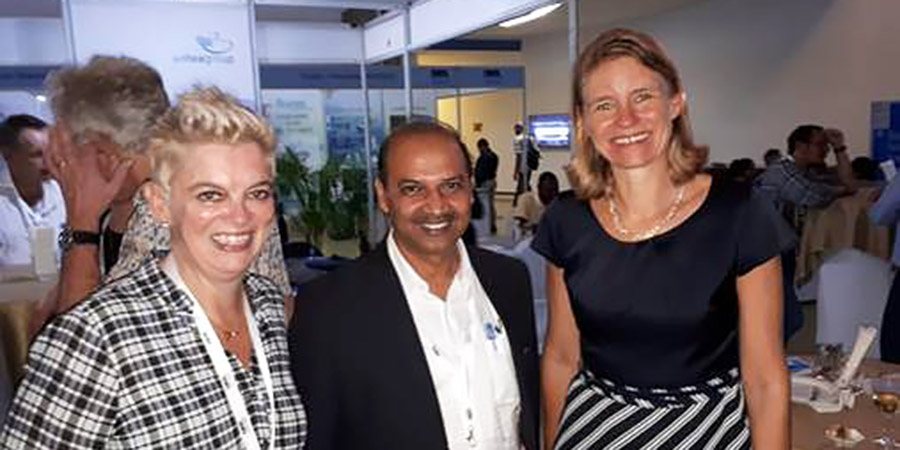
Dutch and local expertise is key to success
Our clients value the combination of Dutch and local expertise and experience. In fact, I would say that it is key to our success. This was also the case at the urban canal rejuvenation/renovation and water transport project in the coastal city of Kochi, south India, which Antea recently won. The project entails making five major canals in Kochi navigable through restructuring. We will prepare the concept and the detailed design, and provide supervisory services for the project. Waterways can be a city’s lifelines, but in Kochi only 20% of waterways are used for navigation. The rest are used as drainage canals.
Kochi is facing severe waterlogging and to some extent this is due to the poor maintenance of canals. The five major canals, which cover a total length of 34 kilometres, will be cleaned by setting up independent sewage treatment plants and disposal systems; curbing sewage outfalls and solid waste dumping; reducing the risk of flooding; and retaining and replenishing water by ensuring its smooth flow. At the same time, accessibility will be enhanced by making canals navigable, improving connectivity and promoting cross-connectivity by turning the navigable routes into a feeder service to the existing road, metro and water metro public transport systems.
At the exhibition in Colombo, taking Kochi as an example, Ms Gonggrijp suggested that future plans for Colombo’s water transport system could also be interesting to look into. Interestingly, both cities share a Dutch past. In Colombo, the existing water transport system is partly based on Dutch construction centuries ago when Sri Lanka was a Dutch colony. And last October, during their visit to India, King Willem-Alexander and Queen Maxima of the Netherlands visited Kochi. The Royal couple took a cruise on the so-called ‘backwaters’ around Alleppey. The area was hit by large floods in 2018 which caused a lot of human suffering. Measures to prevent future flooding, that included Dutch expertise, were discussed during their visit. Antea India’s ambition is to help strengthen long-term relationships by focusing on sustainable results for a better world. As we say, ‘by understanding today, we are improving tomorrow.’’
